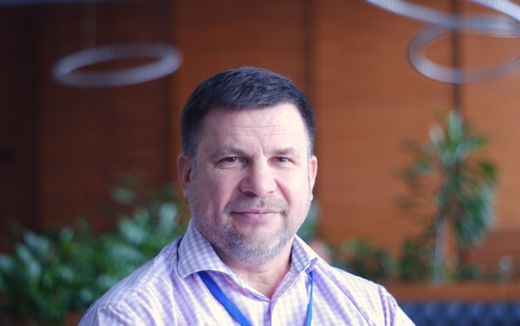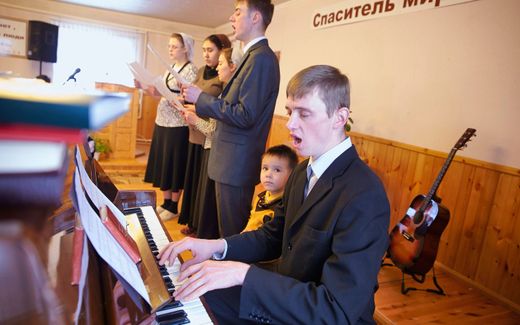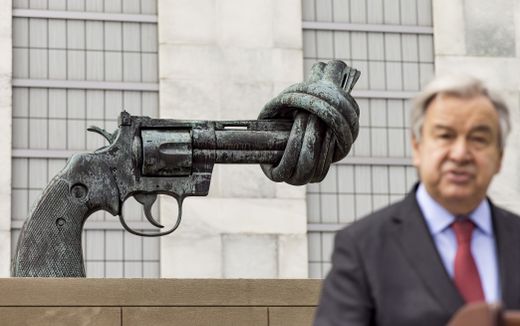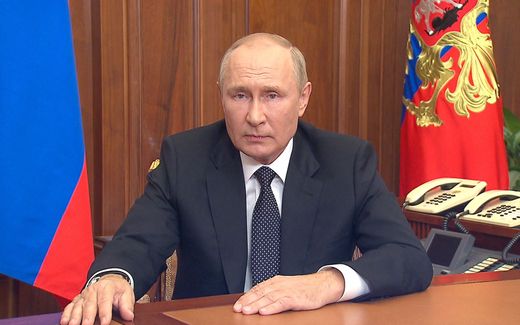Pacifism in the war (1/2): In the Ukraine conflict, some Christians serve soldiers rather than becoming one
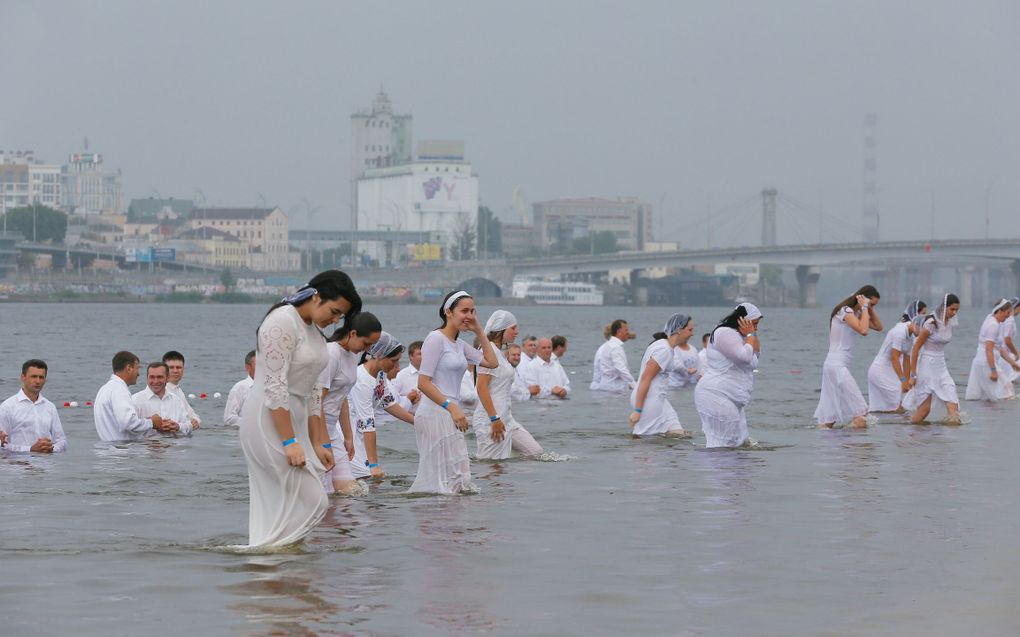
Baptism service in Kyiv. Baptists in Ukraine try to serve their country in another way than being a soldier. Photo EPA, Sergey Dolzhenko
Eastern Europe
The Baptist youth minister Roman Suhar desired to serve his country Ukraine. But for him, fighting was out of the question. Together with a friend, he created a foundation to help soldiers and civilians.
The war in Ukraine has left its Christian leaders grappling with how to serve their communities. Some feel that peacekeeping rather than front-line fighting remains more effective in serving God and the country.
While Suhar worked as a youth minister in Ukraine, his local military recruiter called him. He said he would serve as a church volunteer rather than fight in the war. The recruiters accepted his request, despite a nationwide conscription law that requires men to report for military service. He and his friend could now distribute medicines and food boxes to refugees and soldiers.
As the war worsened, many church leaders fled the country and worked in ministries outside Ukraine. While the urge to leave seemed tempting, he and his family decided to stay and serve the 50,000 people that needed their assistance.
He is not a pacifist, Suhar says. However, he says helping soldiers rather than becoming one is the best way to serve. “We want to serve our people. We have no choice, and we must help many, many people”, he said.
Russian-Germans
Johannes Dyck, who is a historian at Bible Seminary Bonn in Germany, says that serving others and not taking up arms remains more effective in responding to the Ukraine war. The Baptist seminary, which was founded by Russian-Germans in 1992, has pacifist roots that can be traced to the Mennonite movements from the 16th century. After Catharine the Great invited German peasants to settle in Russia, many returned from the Soviet Union to Germany, refusing to take up arms because of their “Biblicism,” Dyck said to CNE.
“It is a quite natural reaction in the spirit of the New Testament. I cannot speak for the huge spectrum of worldwide Christianity. But people from my community certainly prefer humanitarian work to express their loyalty to their Master,” he said.

Dyck says that since the Communist Revolution, Baptists in Russia have not possessed any “uniform doctrine on taking up arms.” However, in 1991, Russia passed laws on alternative service, giving young Baptists more freedom to refuse, along with caveats. The new legislation required a court appeal from applicants, which proved difficult. As a result, some local churches have provided legal support for their members.
As for now, serving others remains a crucial part of representing the Russian community. For example, many Russian-Germans have opened their homes to Ukrainian refugees without payment, Dyck said.
“Christians in free churches in Russia are now going through great tests of their personal faith. Being outside the country, we can observe different reactions to conscription: some flee to foreign countries, some go into hiding in their own country, some are ready to go to prison for a maximum of 10 years, some go to the army,” he said.
Seminary students
As for Russian Baptists who refuse to participate in President Putin’s “special military operation,” tests of faith remain. Putin’s partial-mobilisation decree from September has made it more difficult for Christians to refuse military service. Recent amendments have also made the situation more complicated. Alternatives exist, but approvals can be challenging. According to an army attorney’s statement from Meduza, accepting alternative service and getting a court appeal remain constitutionally legal. However, decisions take time. He said that when the court does issue a decision, the applicant may already be drafted into the army. CNE previously reported that first-time students who are studying at state-registered Christian seminaries could apply for an exemption.
Regarding taking up alternative service, a spokesperson of the Russian Union of Evangelical Christian-Baptists, says on the basis of anonymity it is still an option for Christians who refuse to fight. At least 70 different state-approved occupations can fulfil the state’s one-year mandatory conscription requirements or the recent partial-mobilisation decree. The jobs can range from working as a medical assistant to caring for the elderly in nursing homes. While working in these roles does remain a viable alternative, the spokesperson says that churches are crucial to making Christian pacifism a reality.

“We do everything that is expected of us to defend the rights of our churches and our brothers,” he said in a written statement.
Whether a Christian decides to take up arms, prayers for peace remain crucial in ending the war. “I personally am very sad about the developments after February 24th, and I pray to my Lord about that,” Dyck said.
Related Articles


